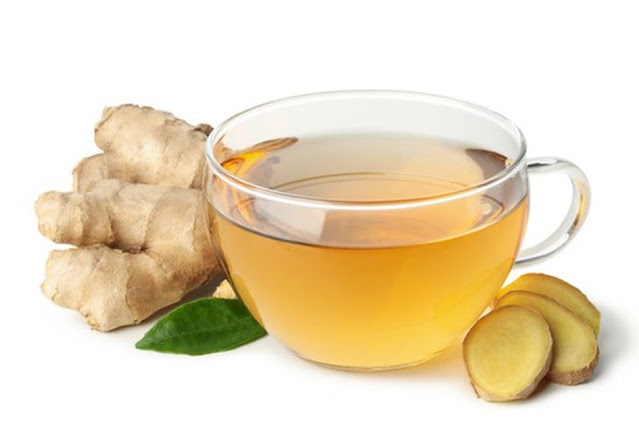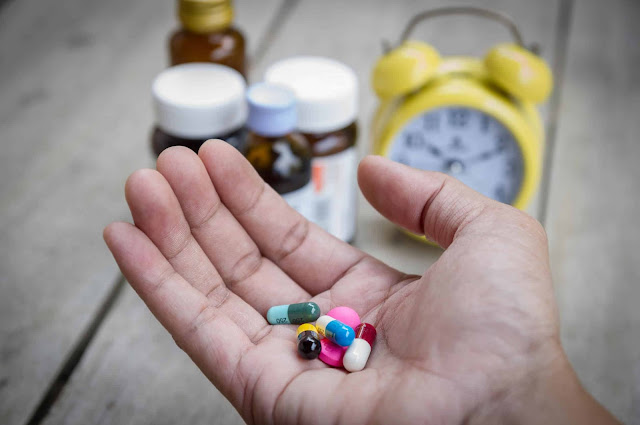 |
| Cough | Pic by honestdocs |
Coughing is a natural body response that aims to get rid of various substances that can irritate the respiratory tract. However, a persistent cough can be a symptom of an illness. This condition can seriously interfere with daily activities. Fortunately, there are various ways you can do to cure a cough, ranging from home remedies, natural ingredients, to relieving coughs with over-the-counter (OTC) drugs.
How to cure cough
Coughing is a natural response of the body even when you are not sick. However, coughing due to certain conditions, such as a cold or flu can be annoying. People who have allergies, sinusitis and asthma can experience a cough when the disease recurs.
A persistent cough can make you feel uncomfortable and your body becomes weak so that your daily activities are disrupted. The reason is, coughing makes the muscles around the chest feel sore and the throat feels dry and sore.
So that your activities do not continue to be disturbed by the cough you are experiencing, consider the following ways to get rid of a cough:
1. Drink lots of fluids
When a cold or flu, the virus makes the production of mucus or phlegm more. Excess phlegm can flow from your nose to the back of your throat and cause you to cough up phlegm.
One effective and easy way to cure cough with phlegm is to drink more water. It will be more effective if you consume warm water.
According to a clinical study conducted by Cardiff University in the journal Rhinology, warm liquids can help clear the throat and loosen thickened mucus so that phlegm is more easily expelled when coughing. When the phlegm no longer clogs the airways, the cough will decrease and you can breathe more easily.
How to cure a cough on this one is best if it is accompanied by increasing rest time. That way, your immune system can more optimally stop the disease that causes coughing.
2. Consumption of natural cough medicine
Some ingredients or natural cough medicines that you can use to get rid of coughs, include honey tea and lemon slices. It can also help relieve nasal congestion and clear the throat.
In many studies, one from the journal Family Physicians of Canada, honey is known to be effective in curing coughs in children if consumed regularly during coughing.
You can also try hot drinks like wedang ginger or pineapple juice for a natural cough remedy. Pineapple contains bromelain compounds which are anti-inflammatory and mucolytic, which helps the body break down and drain mucus that blocks the throat.
3. Take a warm bath
This method has the same properties as drinking warm drinks to relieve coughs. The steam produced from the warm water you breathe in can help loosen the secretions that produce mucus in the nose up to the throat so that coughing is reduced.
A warm bath can be a way to deal with coughs that are not only caused by colds, but also allergies. Many believe that bathing is not allowed if during coughing you also have a fever and chills. Even though cleaning the body is still important for your health.
As a way to cure a cough accompanied by a fever, you can use a cloth soaked in warm water to clean the body. To help relieve symptoms, rub a balsam containing camphor, eucalyptus oil, and menthol on the chest, neck, and back after bathing.
4. Maintain humidity and cleanliness of the air
Dry and dirty air can trigger allergic rhinitis, one of the symptoms of this allergic reaction is coughing. Try trying out the use of a humidifier to keep the air in the room moist while clearing the air circulation of dirty particles, dust, and germs that cause coughing.
5. Quit smoking
In addition to dry air, perfume spray and cigarette smoke can also trigger the production of more mucus. As a result, the cough becomes more severe.
The best and quick way to cure a cough is to quit smoking. In addition, one of the dangers of smoking can damage the ciliary tissue that functions to clean the lung walls from dirt and mucus. This is why active smokers usually experience prolonged cough symptoms compared to non-smokers.
Salt water solution can be a natural remedy for coughing up phlegm. How to use a saline solution to relieve coughing is to rinse your mouth regularly (3-4 times a day) for as long as symptoms last.
Besides being able to help loosen the phlegm that has clotted at the back of the throat, gargling with salt water can clean bacteria and allergens that stick in the mouth. You only need 1/2 tablespoon of salt dissolved in warm water. Gargle for a few minutes, but be careful not to swallow the saline solution.
6. Take medicine
If the previous tips are not effective enough to relieve coughing, you can try cough suppressants. You can get over-the-counter cough medicines easily at pharmacies.
However, remember to make sure first the type of cough you are suffering from: is it a dry cough or cough with phlegm? This method helps you to choose the right medicine to cure cough.
Some types of cough suppressants that you should choose, include:
- Decongestants: commonly available in cough syrup types phenylephrine and pseudoephedrine.
- Suppressants or antitussives: consisting of dextromethorphan, codeine
- Expectorants: the phlegm-thinning drug guaifenesin,
- Mucolytic: drug that dissolves mucus bromhexine and acetylcysteine
- Antihistamines: drugs to treat allergic reactions such as chlorphenamine, hydroxyzine, promethazine, loratadine, cetirizine, and levocetirizine.
- Combination cough medicine in syrup or tablet form consists of a mixture of expectorants and suppressants with antihistamines, decongestants, and pain relievers. In addition, there are also cough medicines containing the active ingredients Dextromethorphan HBr and Doxylamine Succinate to give a warm feeling in the throat and help relieve the four symptoms of coughs and colds.
- A balm that contains camphor, eucalyptus oil, and menthol to give a warm and relaxing effect in the airways.
It is important to know that over-the-counter cough medicines only help relieve cough symptoms, but do not cure the underlying disease.
Therefore, if the cough does not go away after doing home remedies and taking non-prescription cough medicine, you should immediately consult a doctor. A cough that lasts more than 3 weeks (chronic cough) can signal a serious respiratory problem.






